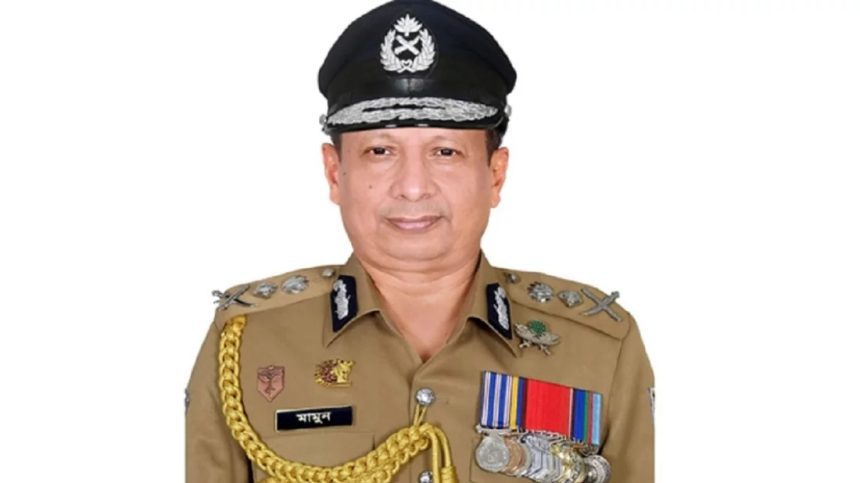Former police chief Chowdhury Abdullah Al-Mamun, the 31st inspector general of Bangladesh Police, has unexpectedly volunteered to testify as a state witness regarding crimes against humanity during the July mass uprising, reigniting public scrutiny of his controversial career.
Mamun’s tenure as police chief during the Awami League government’s final days was marked by his active involvement in disputed elections and brutal suppression of the July protests. Currently facing 155 murder and attempted murder charges, Mamun spent over 60 days in remand without confession before his dramatic courtroom declaration: “I pronounce myself guilty and wish to detail all crimes committed during the July uprising to assist in uncovering the truth.”
Rising through the ranks
Born in 1964 in Sunamganj’s Shalla upazila, Mamun joined the police service in 1989 as an ASP in Brahmanbaria. His career trajectory saw him serve in key positions including CID Deputy SP, Rab Additional DG, and ultimately IGP in September 2022 – three months before his scheduled retirement.
The government controversially extended his service through July 2025, during which he allegedly facilitated the Awami League’s disputed 2024 election victory.
Mamun’s family connections to the Awami League run deep. His brother Alamin Chowdhury previously served as Shalla Upazila Chairman under the party’s banner, though he later lost a parliamentary bid to independent candidate Jaya Sengupta.
Downfall and Arrest
Following the Awami League government’s collapse in August 2024, Mamun was removed as IGP and subsequently arrested in September. Police have since implicated him in multiple murder cases across Uttara police stations, though he had never previously confessed to any wrongdoing until his recent courtroom about-face.
As the tribunal considers his unprecedented offer to turn state witness, legal experts note the potential implications of testimony from such a high-ranking security official during a pivotal moment in Bangladesh’s political history.
His lawyer has already requested special security arrangements, anticipating the explosive nature of any revelations about state actions during the uprising.
The dramatic development marks an ironic twist for an officer who rose through the ranks enforcing government authority, only to potentially become its most damaging witness. Court observers await whether his promised testimony will shed light on alleged state crimes or represent another calculated move in Bangladesh’s complex political landscape.


